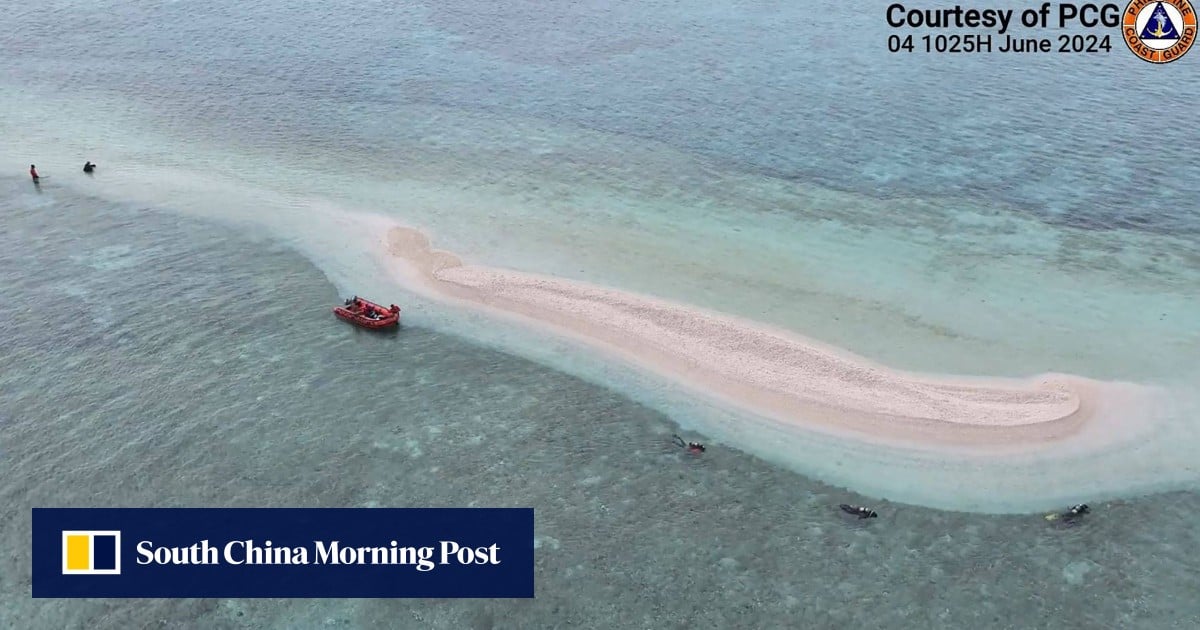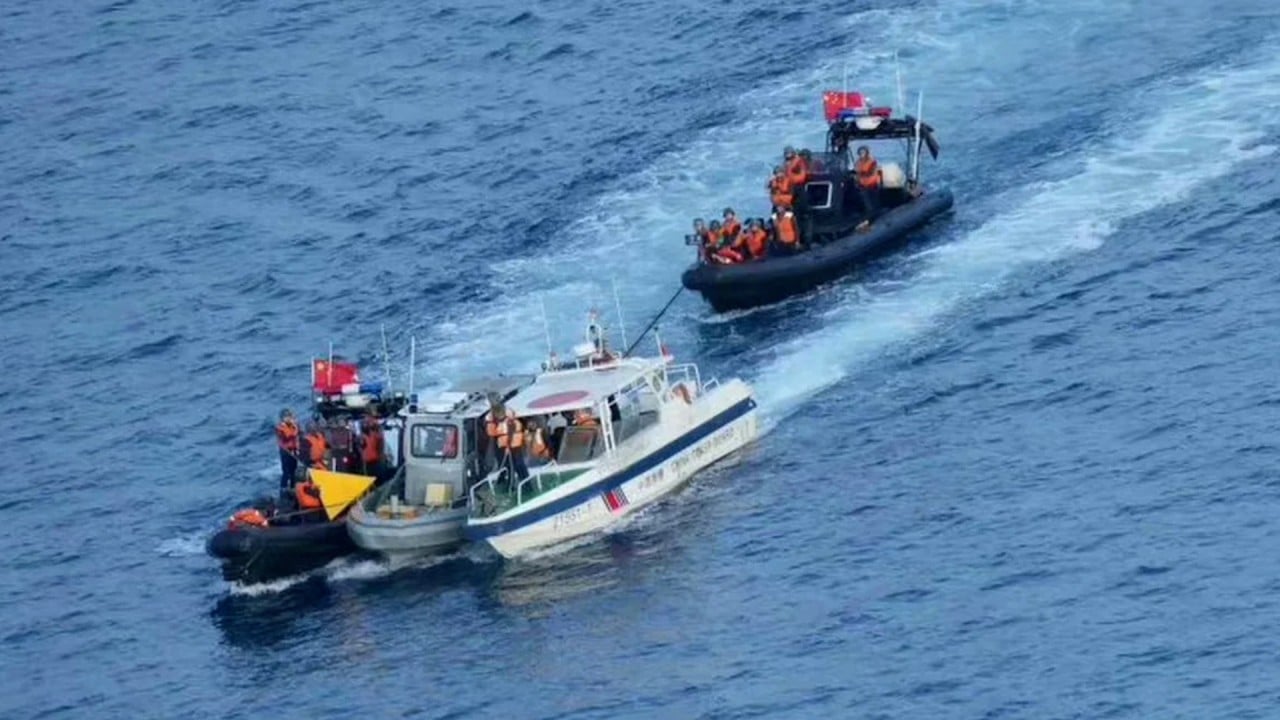“This series of actions by the Philippines warrants high vigilance,” the Global Times said, citing experts who claimed the country appeared to be building a “maritime base” off Xianbin Jiao, Beijing’s name for the shoal.
Rear Admiral Roy Vincent Trinidad, a Philippine Navy spokesman, responded to the report on Tuesday by implying that they had the right to deliver construction materials to their vessel at the shoal, without confirming that was what the coastguard was doing.
“We can do anything that we wish to within our exclusive economic zone. These are actions that the Philippines will pursue if and when necessary,” Trinidad said.
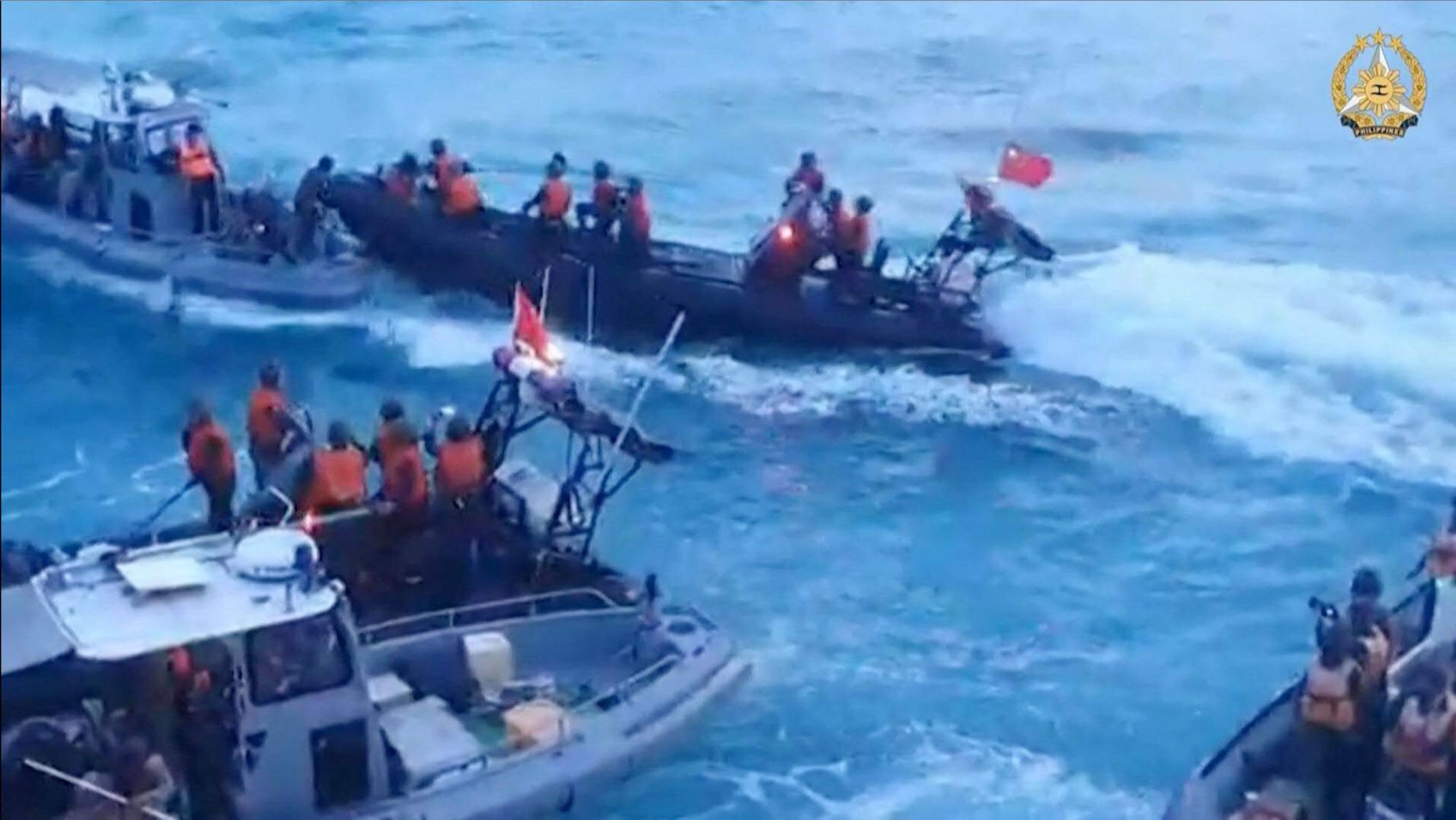
The Philippine government had to ensure that its territory was intact and sovereign rights were protected, he said.
“This will mean increased presence, this will mean increased maritime and air patrols, this will mean stationing ships longer than necessary. Suffice it to say, we will continue ensuring the integrity of our territory,” he added.
In May, the Philippines deployed the BRP Teresa Magbanua to the Sabina Shoal to monitor and prevent alleged illegal activities by China.
Trinidad said the vessel would remain at the shoal depending on its operational capability and crew endurance.
“We are ensuring that we have maritime domain awareness, not only through the presence of our ships, coastguard, or navy but to the other modes of monitoring. This could be space-based or through aerial surveillance flights,” Trinidad said.
For the past few months, Manila and Beijing have been locked in an increasingly contentious territorial row in the West Philippine Sea, Manila’s name for South China Sea waters that lie within its EEZ.
The latest such incident on June 17 resulted in several Filipino sailors being injured, with one suffering a severed thumb, in their clash with Chinese coastguard at the disputed Second Thomas Shoal. The Philippine side was attempting to resupply troops stationed on a military outpost at the shoal.
“These actions undermine international law … The Philippine Navy and the armed forces are doing everything to ensure the integrity of the national territory, the protection of our sovereignty,” Trinidad said.
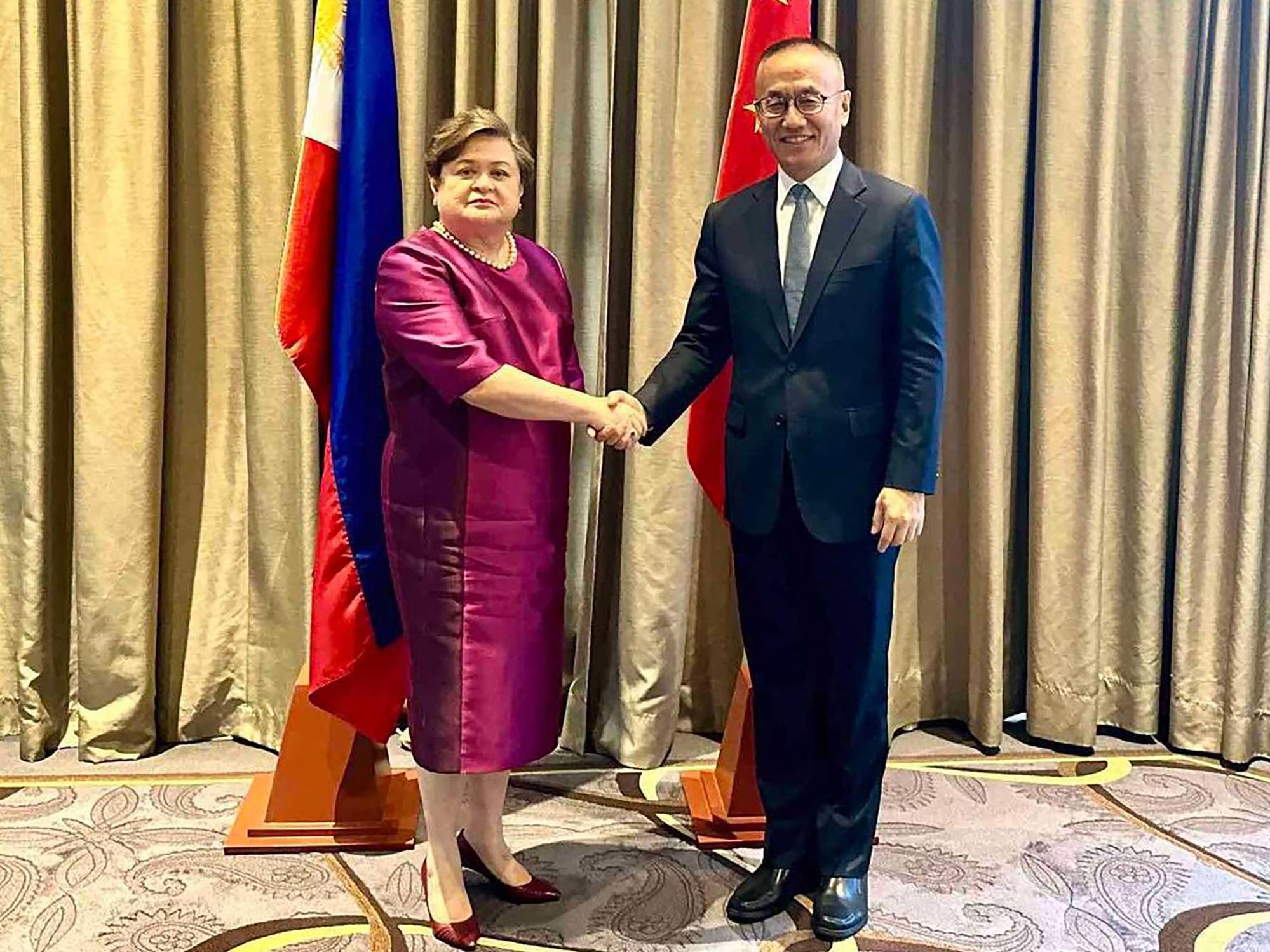
Trinidad’s remarks came as the Philippines and China agreed to de-escalate tensions in the disputed waters during Tuesday’s bilateral consultative mechanism meeting in Manila, where the two sides exchanged views “on the situation in the South China Sea”, particularly tensions at the Second Thomas Shoal.
Foreign Affairs Undersecretary Ma. Theresa Lazaro met Chinese Vice-Foreign Minister Chen Xiaodong behind closed doors for the meeting, where they agreed to continue to manage differences through negotiations.
Asked whether Tuesday’s bilateral meeting contradicted the defence ministry’s stance, Rommel Banlaoi, who heads the Philippine Institute for Peace, Violence and Terrorism Research, told This Week in Asia that de-escalation meant both parties would avoid direct military engagement and maritime activities would not be viewed as a threat to each other.
“That’s the purpose of de-escalation. There will be more coordination, prior notice and hopefully greater cooperation. But that will not mean each party will stop from fulfilling their mission to protect their maritime interest,” he said.
Potential flashpoints
Abdul Rahman Yaacob, a research fellow in the Southeast Asia Programme at the Lowy Institute, said other areas within the Philippines’ EEZ that China claimed could trigger conflicts, given Beijing’s extensive presence in the South China Sea and with Sabina Shoal being just one piece of the puzzle.
“What is more important for the Philippines is maintaining a strong and permanent presence in Sabina Shoal. This requires surface vessels capable of operating longer out at sea. Whether the Philippine Coast Guard has sufficient vessels to maintain a 24/7 presence in many contested areas within the South China Sea is questionable,” Yaacob said.
“I think this is where other actors could assist Manila – assisting the Philippines to improve its maritime domain awareness, donating or providing vessels, or conducting joint patrol with the Philippine Navy.”
Trinidad’s comments, he said, could be seen as stating the Philippines’ position and legal rights regarding the contested area and not contradictory to Manila’s efforts to de-escalate tensions.
“From my perspective, it could be just a negotiating tactic. For a negotiation to be successful in de-escalating tensions, China and the Philippines should not impose any preconditions. I think a lot of issues need to be worked out between Manila and Beijing to de-escalate the situation in the Second Thomas Shoal and other parts of the South China Sea where both parties have overlapping claims,” he said.
Asked if there was a split among the military and administration officials, Yaacob said the military and coastguard were doing exactly as directed by President Ferdinand Marcos Jnr to safeguard the Philippines’ interests in the South China Sea.
“Diplomacy and military deterrence are not mutually exclusive. They reinforce each other. A strong statement and ground actions from the military can contribute to the success of Manila’s diplomatic approach to reduce tensions with Beijing,” he said.
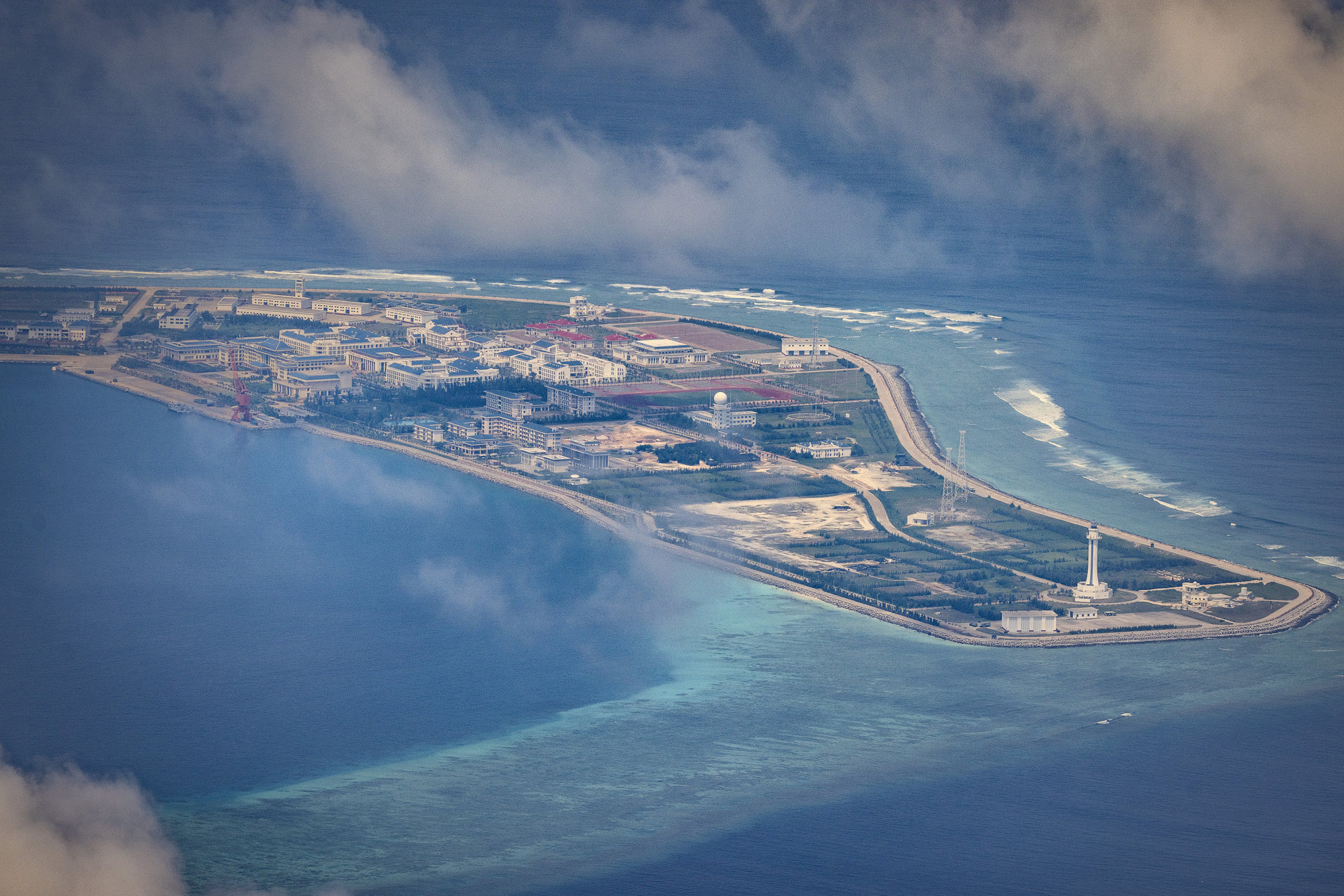
The Philippines, China, Malaysia, Brunei and Vietnam have competing claims in the South China Sea. A tribunal in The Hague ruled in 2016 that Beijing’s claims through its so-called nine-dash-line had no legal basis and recognised Manila’s sovereign rights in the waterway. China has refused to accept the verdict.
Matteo Piasentini, a security analyst from the China and Indo-Pacific desk at Geopolitica, an Italian think tank, told This Week in Asia that while Sabina could be another flashpoint for stand-offs, neither party was likely to resort to outright conflict.
On whether the timing of Trinidad’s statement showed a split between the defence ministry and the administration, Piasentini said lack of coordination did not mean their actions were contradictory.
“Negotiations for de-escalation and reduction of violence can only be beneficial for Filipino personnel operating there at this point, but this shouldn’t come at the expense of the Philippines’ maritime claims. Claims that Manila is entitled to protect through actions anytime it deems opportune,” he said.
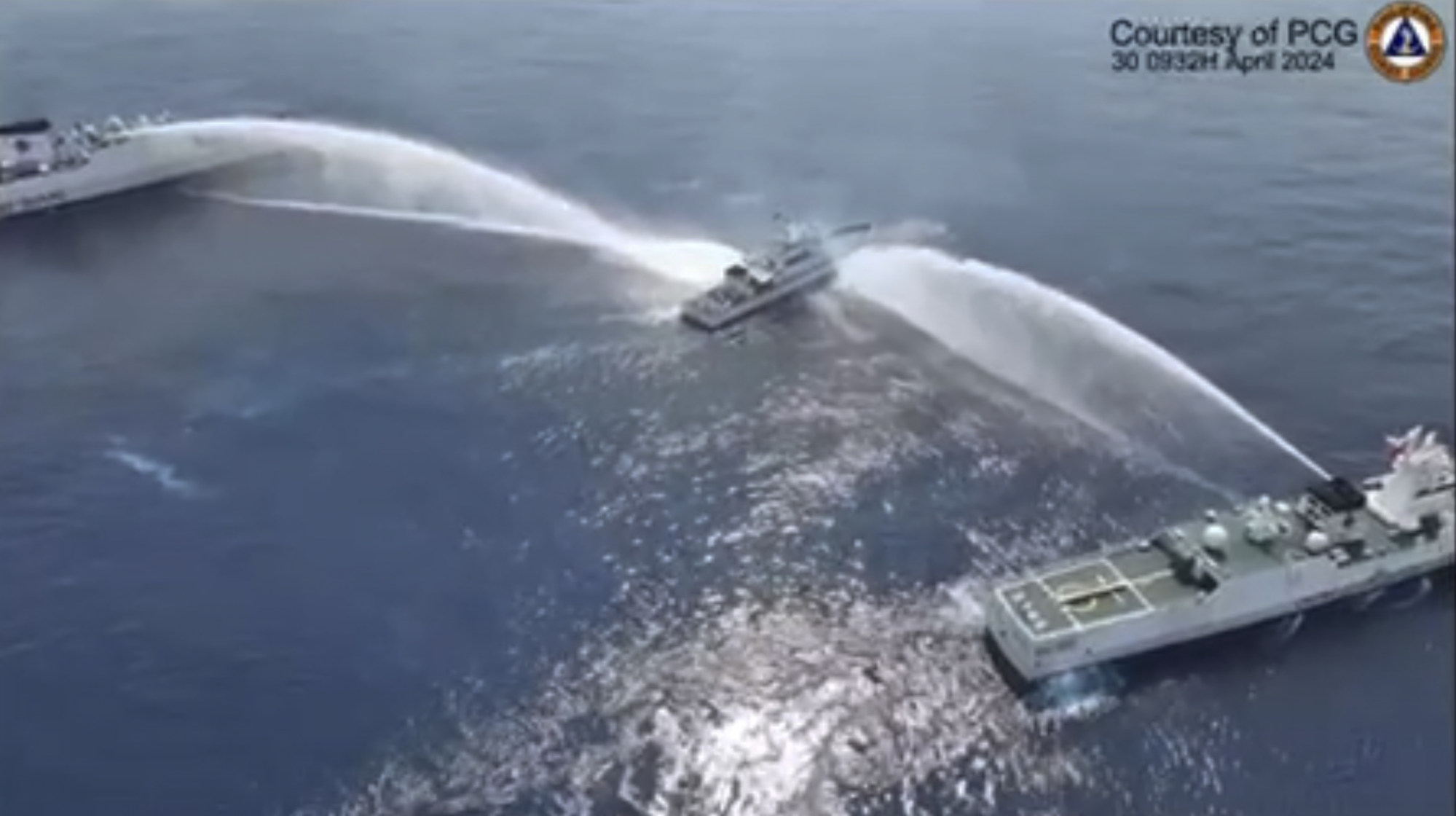
“It should be more and more clear that negotiations with China must and can be conducted without giving up the country’s claims in the South China Sea. Given the existing power asymmetry between the two, a soft stance on the West Philippine Sea by the Philippine government would be seen as capitulation,” he added.
Chester Cabalza, president of the Manila-based International Development and Security Cooperation, said in a separate interview that the smallness of Sabina Shoal would have a bigger impact on the territorial disputes in the Spratlys.
The proximity of the shoal to Palawan province and the disputed Second Thomas Shoal “will create an intensified grey zone and more maritime attacks” to deter the Philippine navy’s resupply missions, Cabalza said.
“The bilateral consultative mechanism needs honest and frank assessment from each party to arrive with conciliatory measures” to minimise conflict at the shoals, he added.

